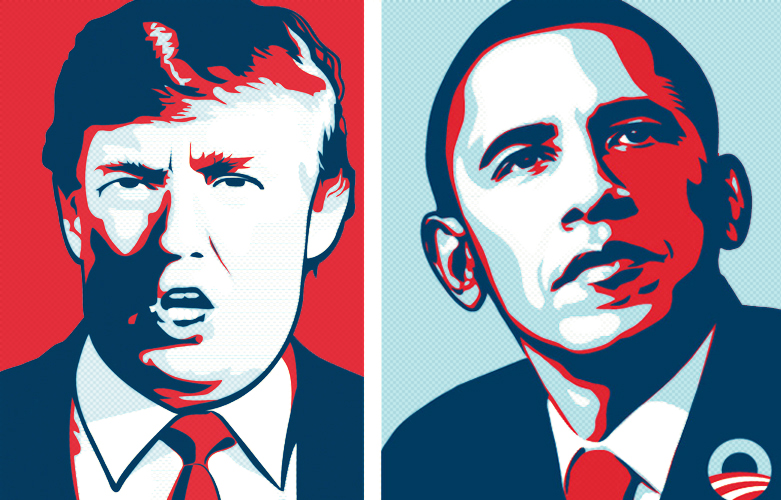In less than a year we are seeing changes in employment legislation from President Barack Obama’s administration to President Trumps involving overtime law, business liability, federal contract bidding, and worker exposure to harmful circumstances, among other policies.
We bring this information to you, to warn that before making changes to your workplace policies and behavior, you need to know what these actions mean, and what you can and can’t do in the workplace.
Legal Rights of LGBTQ Individuals in the Workplace
A substantial change is the Trump administration’s recent memorandum stating that Title VII of the Civil Rights Act’s ban on sex discrimination only pertains to biological sex and not gender identity.
Attorney General Jeff Sessions released the memo in early October, which contradicted official statements from the previous administration. “The Department of Justice cannot expand the law beyond what Congress has provided,” DOJ spokesperson Devin O’Malley said in a statement quoted by CNN.
It’s key to understand that the focus of this memo is narrow, and it does not overrule laws protecting transgender individuals.
In the Oct. 4 memo, AG Sessions clarified that the Trump Administration’s interpretation of Title VII’s sex discrimination clause is about biological sex, not gender identity. While they have reinterpreted Title VII, Sessions’ memo is not about other laws related to gender identity.
“The sole issue addressed in this memorandum is what conduct Title VII prohibits by its terms, not what conduct should be prohibited by statute, regulation, or employer action,” noted the memo.
The memo went on to state that the Department of Justice “will continue to affirm the dignity of all people, including transgender individuals.”
“Nothing in this memorandum should be construed to … remove or reduce the protections against discrimination on the basis of sex that Congress has provided all individuals, including transgender individuals, under Title VII,” noted the memo. “In addition, the Matthew Shepard and James Byrd, Jr., Hate Crimes Prevention Act and the Violence Against Women Reauthorization Act prohibit gender identity discrimination along with other types of discrimination in certain contexts.”
Be careful that your workplace follows all anti-discrimination legislation, at all levels. While the Trump Administration has reinterpreted Title VII’s sex discrimination meaning, no other anti-discrimination legislation has been changed.
Overtime Exemption
According to the Washington Examiner, the Trump administration is taking steps to block the Obama administration’s rule expanding the number of workers entitled to overtime. Under Obama, the annual salary a worker had to make before being exempted was raised to $47,000, more than double the previous level. A Texas court struck it down late last year, a ruling the Obama administration swiftly appealed. The Trump administration has requested two extensions from the court in filing a reply in the case in an attempt to stall any changes.
Civil Rights Violations and the “Joint Doctrine”
Also in October, the Labor department announced that it was rolling back President Obama’s rule that expanded the “joint employer” doctrine, the conditions for when one business can be held liable for employment and civil rights law violations at another company.
Safety
The Occupational Health and Safety Administration quietly withdrew a rule in September that allowed union representatives to accompany agency officials during inspections of non-union workplaces. Federal law allows OSHA inspectors to have worker representatives accompany them during inspections. Dubbed the “walk around” rule, it was originally restricted to employees at the workplace being inspected, but starting in 2013, that was expanded to allow union representatives.
Federal Contracts and Contractors
President Trump has made extensive use of the Congressional Review Act to nullify actions by the Obama administration, including a March bill that rolled back a 2015 rule that forced bidders on federal contracts to disclose if they had ever been charged with labor violations. According to the Washington Examiner, business groups labeled it a “blacklisting” rule, since it could allow a union to undermine a company’s chances at winning a bid just by filing a complaint.
As discussed above, the Trump administration is limited in what it can do to undo Obama-era rules. The National Labor Relations Board (“NLRB”), an independent agency, mainly conducts labor law enforcement. The NLRB has to wait for the proper cases to bubble up before they overturn previous rulings. It’s important to note that Trump has yet to nominate candidates to fill the five-member board’s two open seats.
According to Ronald Miller, J.D., one of the primary goals of the Obama Administration’s Department of Labor was an increase in the minimum wage. President Obama issued an executive order that impacted the minimum wage paid by government contractors. Executive Order 13658, “Establishing a Minimum Wage for Contractors,” signed by President Obama on February 12, 2014, raised the hourly minimum wage paid by contractors to workers performing work on covered federal contracts to $10.10 per hour, beginning January 1, 2015. Unless rescinded by the Trump Administration, beginning January 1, 2017, the EO minimum wage rate will increase to $10.20 per hour and to $6.80 per hour for tipped workers.
While regulations, and the interpretation of some regulations may change with the Trump Administration, the key for employers is to be cognizant of all local, state and federal legislation, and no matter what changes are made, to act with integrity and honesty, following the most stringent of all the regulations.
We know business owners don’t have time to navigate ever-changing employment laws. For help and guidance with regulatory compliance in the workplace, call a Peoplescape Consultant today to get started.

